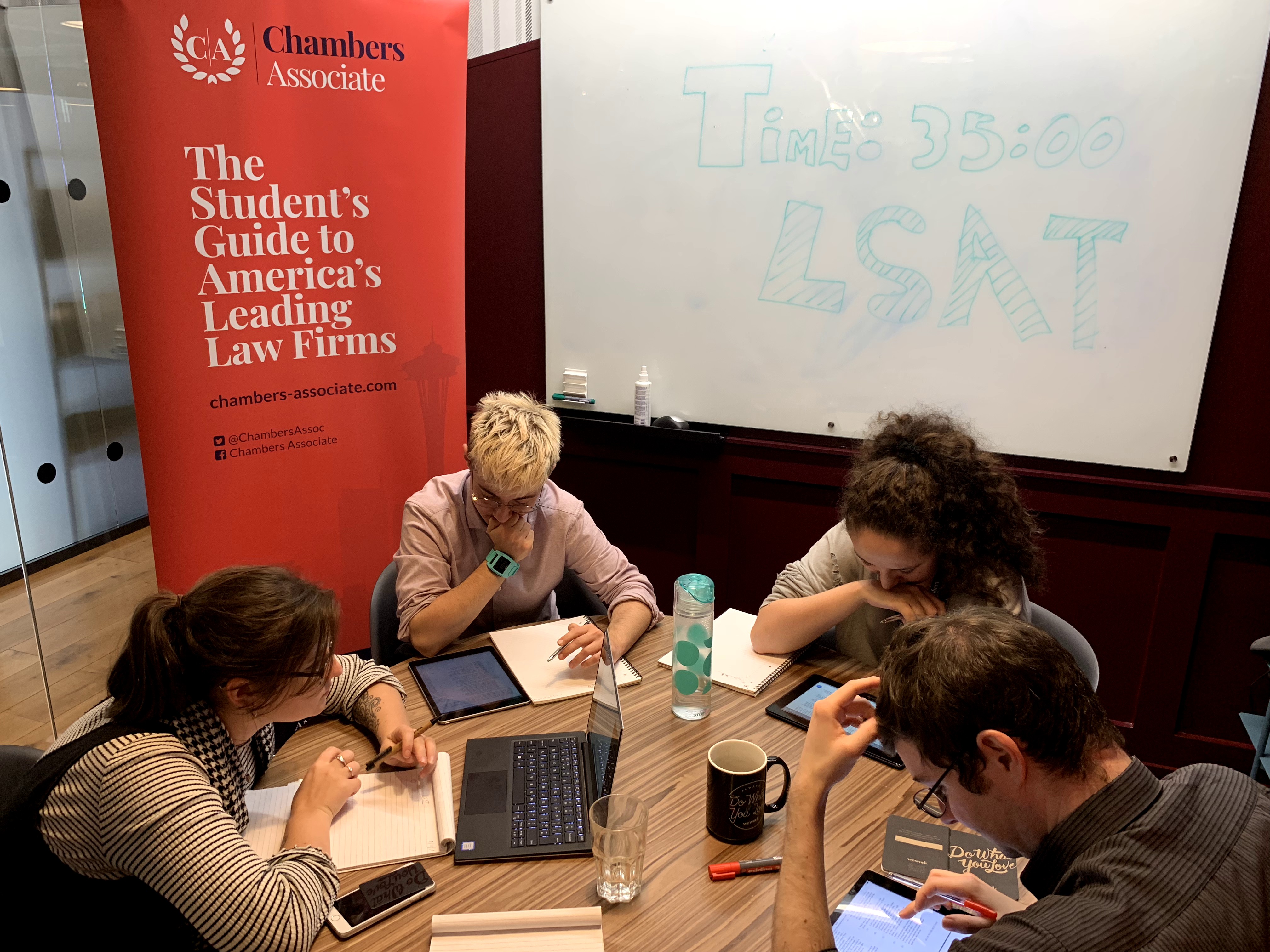
How hard is the LSAT? Four extremely unprepared individuals take the test
Applying to law school is a process that's riddled with uncertainty. We didn't like that, so we've decided to do something to help.
It took mere seconds of lazy Googling to pinpoint the subject that caused the most consternation: The LSAT. The masses of speculation, analysis, courses, books, boasting and fretting, all amounted to a swirling, intimidating, whirlwind of information.
There has long been a mystique around the LSAT. The way some people talk about it, the knowledge which opens the doors to Harvard or Yale seems to reside only within a secretive inner-circle of savants. This helps sell resources, we know that. But it doesn't help those who may already see a legal career as something that's not for 'people like them.'
It's certainly a tough test, involving a significant investment of time – there's no doubting that. But helping to demystify the LSAT seemed right up our street. As well as detailing what you really need to know about the LSAT, we thought we'd take it ourselves. How hard could it really be? Could we go to law school?
The setup
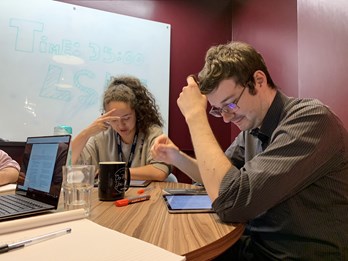
Four of our keen researchers would take one section each of the LSAT paper from June 2007.
They would have zero preparation.
Most had never seen an LSAT question in their life.
To make it just a little bit easier, given this complete absence of preparation, we allowed them an extra five minutes each, meaning they'd have 40 minutes to work through each section.
While this was partly a bit of fun, and an excellent distraction from our work, we hoped the exercise would answer a couple of questions.
One: how different are the skills that the LSAT requires to the skills that our researchers, and the average college graduate, already have?
An ex-Cornell student had previously told us that “improving how quickly you can read is a huge factor in how well you will do. A lot of people lose points because they can't get through all of the reading comprehension questions.” That sounded promising for our intrepid Associate researchers. All have very strong reading and writing skills, or they should have, given that's what our jobs require. But would this actually help them on the LSAT? And which sections would they struggle with the most?
Two: how would our lack of preparation affect us?
In particular, how would we cope without having exposure to the different question types and the structure and timings of the test? Most students' preparation for the LSAT centres on understanding what type of question they are being asked. The different methods for approaching the question hang off this process of identification. Knowing the structure is also important for time-management. Would everyone simply run out of time because of this?
Let's meet the four members of our team that took the test, with their reactions, advice, and results!
NB: We've noted how many questions each researcher answered, but, in time-honored multiple-choice tradition, all the researchers quickly guessed the remaining questions as the 40 minutes came to a close.
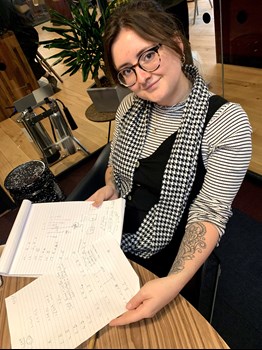 Name: Laura
Name: Laura
Degree: English literature (and another in creative writing!)
Fun fact: Her greatest ambition is to own at least five dogs.
Section: Analytical reasoning (logic games)
Score: 10/23 – 43%
Questions answered in time: 20/23 – 87%
As someone who generally enjoys puzzles, I felt quietly confident in my abilities to get at least a few questions right.
My section had me tackling problems involving cruise liner journeys, recycling bins and film festivals – it was around the tenth question that I started to feel pretty nauseous. Having to keep each assertion posited by the question in mind while trying to answer it was extremely difficult, and I made a series of haphazard diagrams to try and help myself. I'd be interested to know some more effective diagram methods, as it really seems like the best way to keep track.
Towards the end I began to feel a misguided sense of accomplishment, thinking I’d got at least a couple right. Alas, I’d made the rookie error of failing to read the question properly. The test wanted one possible answer... I had given two and sometimes even three. Suffice to say I found this a humbling experience.
"I found this a humbling experience."
 Name: Sal
Name: Sal
Degree: Drama
Fun fact: Does an excellent impression of Russell Crowe in Les Miserables (he's Javert!!!)
Section: Logical reasoning
Score: 14/25 – 56%
Questions answered in time: 17/25 – 68%
I just took an eight hour caffeine tablet to get me through the rest of the day. After about 15 minutes of the test I was sweating – it took THAT much brainpower. I’m still rather hot and shaky now – but that could just be the caffeine.
Having had a historic problem with attention deficit, it was definitely a stupid decision to volunteer to do this. The exhaustion I feel from completing less than 25% of the LSAT must be nothing compared to the rigor of taking the full thing, let alone spending a year routinely doing mock tests and dreaming about logic games.
But I must say this – I really think I could ace this test (and I did a drama degree that had no written exams, so the last time I took a paper of any kind was in 2014.) It would take a lot of studying, but I don’t think this is something out of my – or anyone’s – reach.
I'm also doubtful whether the LSAT really measures how good a lawyer you’ll be. It feels as though the main thing the LSAT is testing is your dedication: how many hours can you commit to perfecting it?
"The test had lulled me into a false sense of security and had been slowly but surely upping the ante."
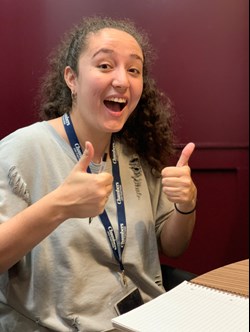 Name: Nat
Name: Nat
Degree: English literature
Fun fact: Can hide almost anything in her hair
Section: Logical reasoning
Score: 15/25 – 60%
Questions answered in time: 17/25 – 68%
To say it was daunting would be an understatement. Looking at the questions, my brain completely blanked as I struggled to make head or tail of what was in front of me. After the first few, I started getting the hang of it, only to realise that the test had lulled me into a false sense of security and had been slowly but surely upping the ante with each question.
Maybe things would have gone better had I known I would be taking the test prior to the morning of the test...
"...ambiguity around what the 'best' answer was."
 Name: Alex
Name: Alex
Degree: Philosophy
Fun fact: Actually took a logic course once (making him severely overqualified)
Section: Reading comprehension
Score: 19/27 – 70%
Questions answered in time: 22/27 – 81%
For the reading comprehension section, my tactic was to read the passage, create a rough summary in my head and then answer multiple questions in clumps.
What I did notice was that certain questions could be answered by holding the salient points of the article in your head, but others definitely required you to go back and read the relevant parts of the article. Sometimes you only needed to look at a few lines to get the answer.
The difficulty came from two things: the time pressure you were under, and the ambiguity around what the 'best' answer was. Some questions seemed to require you to make certain assumptions, based on 'common sense,' which ultimately rely on you thinking in the same way as the person writing the question.
Being in a room full of very excitable work colleagues is also a bit of disadvantage. I'd avoid that if you can.
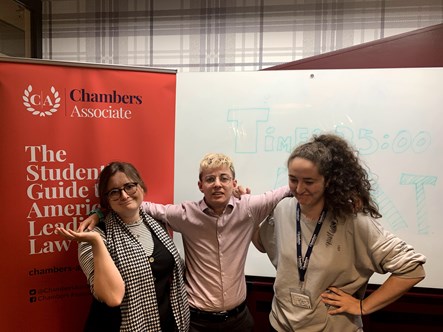
|
Are we going to law school? |
So, how did we do overall?
Well, the team's 'raw score' came out as 58 out of 100. Converted to the classic LSAT 120-180 scale, that's a 'reported score' of 149.
The good news is that the Associate team could, theoretically, go to law school. A score of 149 is as high, or higher than the median LSAT score of at least a number of law schools.
However, we're not talking about top 20 schools here (you'll need 160+ for that), or even top 40 for that matter – instead our team members will need to check out those firms ranked beyond the top 100 by US News & World.
Going by the 25th percentile of the LSAT scores achieved by the entering class (using the most up-to-date data we could find), we can say that the following schools have all taken students with a score of 149: Suffolk University Boston, Northern Illinois University, University of Dayton, University of Arkansas at Little Rock William H. Bowen, Vermont Law School and University of South Dakota School of Law.
We were genuinely surprised at this.
None of the four finished all of their questions in time – even with the extra five minutes.
But let's be brutally honest. The extra five minutes. That's a big one. One big takeaway was that none of the four finished all of their questions in time – even with the extra five minutes. Guessing five or more questions at the end is not ideal. Speed, or efficiency, is going to be a massive part of succeeding.
Then, there's the fact the team only had to grapple with one section each. The length of the exam, and the pressure of the real thing, would surely have taken a toll on their concentration.
But we were still surprised how far the team's pure intelligence carried them, especially when it came to reading comprehension and analytical reasoning.
Unsurprisingly, logic games was the hardest section. It's so radically different from what you have to master at undergrad, that Laura has plenty of legitimate excuses to draw on (even if she did forget how multiple choice works).
So, there you go – the results should hopefully leave you with cautious optimism, although we'd strongly advise against taking the LSAT with no practice.
We had a lot of fun doing this, and Laura, Alex, Sal and Nat are now strutting around the office boasting about their efforts. It's becoming a little unbearable. If you havn't already tried taking the LSAT, now you have a little extra motivation – putting them back in their place.